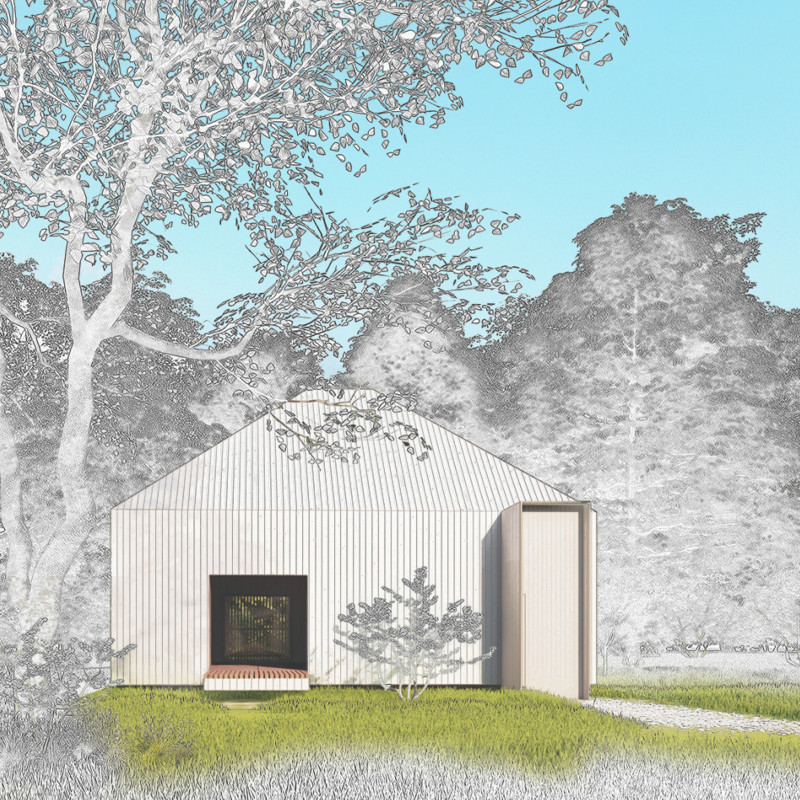5 key facts about this project
The architecture of the Cove Cabin revolves around a simple gabled form complemented by vertical timber cladding. The design prioritizes natural materials that enhance thermal performance while maintaining aesthetic integrity. Key materials used in this project include sustainably sourced wood for structural and aesthetic elements, extensive glass for daylighting and connection to the outdoor environment, and durable metal components. This careful selection ensures that the build is not only functional but also eco-friendly.
Distinctive spatial configurations define the interior. The open-plan design allows for flexibility in how spaces are used, incorporating multi-functional furniture to maximize usability. The central living area functions as the heart of the cabin, accommodating both social interaction and solitary reflection. A wood-burning stove serves as a focal point, providing warmth and reinforcing a sense of comfort within the compact space.
A significant aspect of the Cove Cabin is its adaptive design. The modular elements allow the structure to adjust based on the occupants’ needs, with folding panels that create seamless transitions between indoor and outdoor areas. This design approach fosters a strong relationship with the surrounding landscape, enabling users to experience nature more fully. The expansive glazing not only facilitates natural light but also frames views, enhancing the overall living experience.
The architectural ideas presented in the Cove Cabin reflect a thoughtful integration of form and function, emphasizing sustainability and user-centered design. Each detail, from the choice of materials to the configuration of spaces, contributes to a cohesive living environment. The project stands out in its ability to harmonize modern living with ecological awareness, making it a noteworthy example in contemporary architecture.
For more detailed insights into the project, including architectural plans, sections, and designs, readers are encouraged to explore the full presentation of the Cove Cabin. By reviewing these elements, one can gain a deeper understanding of the innovative approaches that define this architectural work.


























